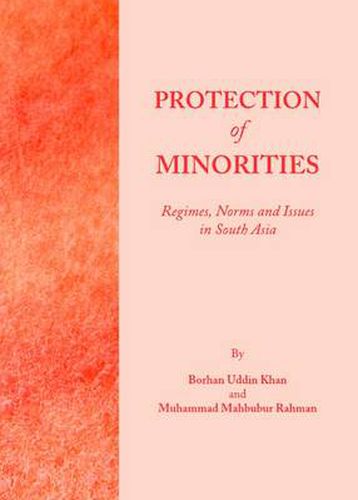Readings Newsletter
Become a Readings Member to make your shopping experience even easier.
Sign in or sign up for free!
You’re not far away from qualifying for FREE standard shipping within Australia
You’ve qualified for FREE standard shipping within Australia
The cart is loading…






We live in a world that not only sets standards for, but also professes its commitment to promoting and protecting ‘rights’. Since ours is an age of heightened public interest in auditing the actual realisation of such standards and commitment, the first major focus of this book is a critical account of international standards aimed at the protection of minorities. To that end, it concentrates on four key dimensions. Firstly, it addresses the issue of the identification of minorities as understood by international law. Secondly, it outlines a brief history on the development of international law towards improving the protection of minorities. Thirdly, it gives an overview of international instruments and mechanisms on minorities. Finally, it analyses the rights of minorities under international standards. All these dimensions point to the fact that international minority rights lag behind the development of other branches of rights.The second major focus of this book is to relate international standards on minority protection to South Asian regimes. Concentrating on India, Pakistan, Bangladesh, Nepal, Sri Lanka, Bhutan, the Maldives, and Afghanistan, an endeavor is made to examine the state of minorities and their protection under the domestic regimes. It emerges that the normative commitments of these states are more or less compatible with international standards. Nevertheless, majority-minority syndrome persistently remains as one of the causes behind multidimensional deprivation and victimization of South Asian minorities. The present book also assesses the extent to which regional cooperation in South Asia has so far contributed to extending protection to minorities. This ends with an argument that SAARC (South Asian Association for Regional Cooperation) has the potential to play a far greater role in this regard.
$9.00 standard shipping within Australia
FREE standard shipping within Australia for orders over $100.00
Express & International shipping calculated at checkout
We live in a world that not only sets standards for, but also professes its commitment to promoting and protecting ‘rights’. Since ours is an age of heightened public interest in auditing the actual realisation of such standards and commitment, the first major focus of this book is a critical account of international standards aimed at the protection of minorities. To that end, it concentrates on four key dimensions. Firstly, it addresses the issue of the identification of minorities as understood by international law. Secondly, it outlines a brief history on the development of international law towards improving the protection of minorities. Thirdly, it gives an overview of international instruments and mechanisms on minorities. Finally, it analyses the rights of minorities under international standards. All these dimensions point to the fact that international minority rights lag behind the development of other branches of rights.The second major focus of this book is to relate international standards on minority protection to South Asian regimes. Concentrating on India, Pakistan, Bangladesh, Nepal, Sri Lanka, Bhutan, the Maldives, and Afghanistan, an endeavor is made to examine the state of minorities and their protection under the domestic regimes. It emerges that the normative commitments of these states are more or less compatible with international standards. Nevertheless, majority-minority syndrome persistently remains as one of the causes behind multidimensional deprivation and victimization of South Asian minorities. The present book also assesses the extent to which regional cooperation in South Asia has so far contributed to extending protection to minorities. This ends with an argument that SAARC (South Asian Association for Regional Cooperation) has the potential to play a far greater role in this regard.